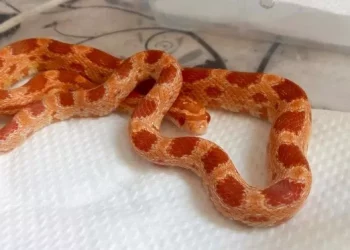Rabbits are adorable, fluffy creatures that can make wonderful pets, bringing joy to their owners with their gentle and curious nature. However, if you’re a rabbit owner, you might face one of the most worrying issues that can arise: a rabbit that won’t eat. This behavior can be alarming, as it may indicate a serious health problem or simply be a sign of stress.
This article will guide you through understanding why your rabbit might refuse to eat, the potential risks involved, and what you can do to help them return to their normal eating habits. We will also explore the best food options and strategies to get your rabbit back on track. By the end, you’ll have a comprehensive understanding of how to address your rabbit’s eating problems and ensure they receive the proper nutrition.
Why Won’t My Rabbit Eat?
Before diving into what to feed a rabbit that won’t eat, it’s essential to understand why rabbits may suddenly stop eating. There are many reasons why a rabbit may refuse food, and it’s crucial to pinpoint the cause in order to address the issue effectively.
Dental Problems Rabbits have constantly growing teeth, and if they don’t wear them down properly by chewing on hay and other rough foods, they can develop dental problems such as malocclusion, where the teeth misalign. This misalignment can cause pain and make it difficult for the rabbit to chew, leading to a loss of appetite.
Symptoms of dental problems:
- Drooling or wet chin
- Reduced interest in food
- Weight loss
- Swollen face or jaw
Gastrointestinal Stasis (GI Stasis) One of the most common and dangerous health issues in rabbits is gastrointestinal stasis (GI stasis), which occurs when the rabbit’s digestive system slows down or completely stops. GI stasis can happen due to stress, dehydration, a lack of fiber, or a sudden change in diet. This condition can be life-threatening if not addressed immediately.
Symptoms of GI stasis:
- Loss of appetite
- Abnormal feces (small, dry, or absent)
- Lethargy
- Abdominal discomfort (bloated stomach)
Pain or Illness Rabbits are masters at hiding pain, but when they experience discomfort, they may stop eating. Illnesses such as infections, inflammation, or organ issues can cause your rabbit to feel unwell, resulting in a lack of interest in food.
Signs of pain or illness:
- Teeth grinding or tooth-chattering
- Lethargy
- Hunched posture
- Lack of grooming
Stress or Environmental Factors Stress is a major contributor to a rabbit’s refusal to eat. Changes in their environment, loud noises, new animals, or even a sudden disruption in routine can stress out rabbits. Stress can disrupt their digestive systems, leading to a loss of appetite.
Signs of stress:
- Hiding
- Aggression
- Excessive grooming
- Lack of movement
Changes in Diet Rabbits are creatures of habit, and any sudden change in their diet can cause confusion and a loss of appetite. Whether you’ve recently switched to a new brand of food, introduced new treats, or altered the type of hay, these changes can cause digestive upset.
Signs of digestive upset:
- Soft stools or diarrhea
- Gas or bloating
- Refusal of food or water
What Are the Risks of a Rabbit Not Eating?
A rabbit that refuses to eat is at risk of developing several serious health problems. If your rabbit stops eating for 12–24 hours, their condition could deteriorate rapidly. Below are some of the risks associated with not eating:
GI Stasis: As mentioned earlier, GI stasis can occur when a rabbit’s digestive system stops working properly. Without the necessary fiber and nutrients, the gut bacteria may become imbalanced, leading to a buildup of harmful bacteria. This can cause severe gastrointestinal issues, dehydration, and even organ failure.
Dehydration: If your rabbit isn’t eating, it’s likely not drinking enough water either. Dehydration can lead to a lack of appetite, reduced urine output, and serious health complications. Rabbits rely on proper hydration for their bodily functions, and without enough water, they are at risk of developing kidney problems or other organ issues.
Weight Loss: Without food, your rabbit will begin to lose weight. Prolonged weight loss can lead to malnutrition, weakness, and a decrease in overall health. If your rabbit is not eating regularly, you should consult a veterinarian to address the issue.
Liver Failure: In extreme cases, if a rabbit doesn’t eat for too long, they may develop a condition called “fatty liver disease” (hepatic lipidosis), which occurs when the liver becomes overwhelmed with fat. This can cause the liver to malfunction and can be fatal.
How to Get a Rabbit to Eat Again
If your rabbit is not eating, the first step is to consult with a veterinarian to rule out any medical conditions that might be causing the issue. Once you’ve addressed any underlying health concerns, the following steps can help stimulate your rabbit’s appetite and get them back to their normal eating habits.
Ensure They Have Access to Fresh Hay Hay is the most important part of a rabbit’s diet, and it should always be available. The fiber in hay helps with digestion and prevents gastrointestinal stasis. If your rabbit is refusing food, offering different types of hay may help. Try fresh timothy hay, meadow hay, or even oat hay to see if your rabbit prefers a particular variety. You may also want to try offering hay in different places in their living space to encourage them to nibble.
Offer Fresh Greens Fresh leafy greens are a great source of hydration and nutrition for rabbits. Try offering a variety of leafy vegetables, such as romaine lettuce, parsley, cilantro, dandelion greens, and basil. Avoid iceberg lettuce, as it contains too much water and can cause digestive issues. If your rabbit is hesitant to eat, you can try gently waving the greens in front of their nose to spark their interest.
Provide a Variety of Fresh Vegetables While hay should make up the majority of a rabbit’s diet, they also enjoy fresh vegetables. Try introducing a small amount of carrot, bell pepper, zucchini, or broccoli to entice them to eat. Remember, introduce new foods gradually to avoid upsetting their stomach.
Offer Pellets in Small Amounts High-quality rabbit pellets can provide the necessary nutrients that a rabbit needs to thrive. However, pellets should not be the main food source. If your rabbit is not eating, try offering a small bowl of pellets to see if they will nibble. Keep in mind that pellets should be high in fiber and free of added sugars or artificial ingredients.
Hand-Feed if Necessary If your rabbit is refusing to eat, sometimes hand-feeding can stimulate their appetite. You can offer small amounts of food directly from your hand, such as fresh greens, pieces of carrot, or pellets. This can help create a sense of comfort and security and encourage them to take a bite.
Offer Treats and Special Foods In some cases, offering treats can help coax your rabbit into eating. Fresh fruits like apple slices (without seeds), banana, or blueberries can tempt your rabbit to eat. However, keep in mind that fruits should only be offered in small amounts as a treat, not as a regular part of their diet.
Provide Plenty of Fresh Water Dehydration is one of the most significant risks when a rabbit is not eating. Make sure your rabbit has constant access to clean, fresh water. If your rabbit refuses to drink from their bowl, try offering water via a syringe or small water bottle. You can also provide water-rich foods, such as cucumber or leafy greens, to help with hydration.
Create a Calm and Comfortable Environment Stress is a major contributor to a rabbit’s refusal to eat. To help your rabbit feel more comfortable, ensure their living space is quiet, safe, and free from disturbances. Provide plenty of hiding spots where they can retreat to if they feel anxious. Avoid handling them excessively, as too much interaction can cause additional stress.
Encourage Exercise Physical activity helps stimulate a rabbit’s appetite and digestive system. Encourage your rabbit to move around by setting up a safe play area. Allow them to hop around and explore, which will also help alleviate stress and increase their hunger.
Consult with a Veterinarian If your rabbit is not eating, and none of the above strategies work, it’s essential to seek professional veterinary care. A vet can diagnose any underlying health problems and provide specific treatments, such as syringe feeding or medication, to help your rabbit get back on track.
Conclusion
When a rabbit refuses to eat, it can be a distressing experience for both the rabbit and the owner. Understanding the potential causes of your rabbit’s lack of appetite is the first step in addressing the issue. Whether it’s dental problems, gastrointestinal stasis, stress, or something else entirely, it’s important to identify the root cause and take the necessary steps to treat it.
By offering a variety of foods, ensuring hydration, and reducing stress, you can often encourage your rabbit to return to healthy eating habits. However, always remember that when in doubt, it’s best to consult with a veterinarian to ensure your rabbit’s health is properly cared for. With the right approach, you can help your rabbit regain their appetite and return to their happy, healthy self.
Related Topics:






















